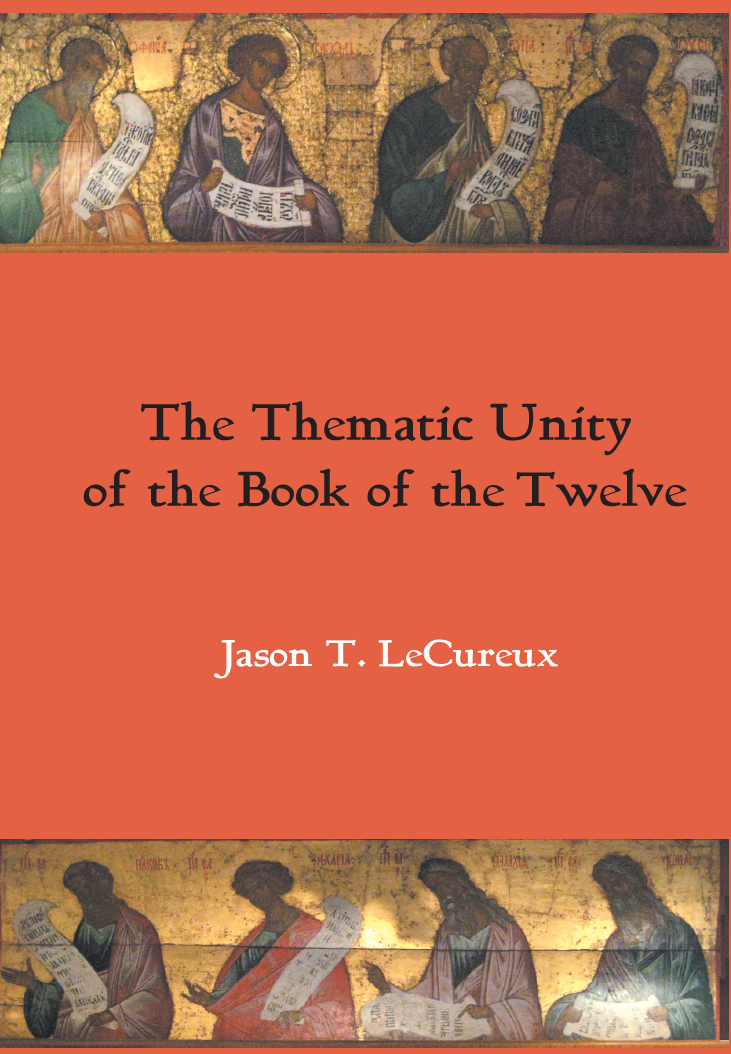The Thematic Unity of the Book of the Twelve
Original price was: £75.00.£30.00Current price is: £30.00.
“Return to me”, declares Yhwh of Hosts, “and I will return to you”, declares Yhwh of Hosts. The sentence stands at the head of the prophecy of Zechariah (1.3). But what does it mean to ‘return to Yhwh?’ And what does it mean that Yhwh ‘will return to you’? LeCureux argues that it is this call to repentance, and Yhwh’s responses to it, that form the unifying and organizing theme of return for the Book of the Twelve.
‚ÄúReturn to me‚Äù, declares Yhwh of Hosts, ‚Äúand I will return to you‚Äù, declares Yhwh of Hosts. The sentence stands at the head of the prophecy of Zechariah (1.3). But what does it mean to ‘return to Yhwh?’ And what does it mean that Yhwh ‘will return to you’? LeCureux argues that it is this call to repentance, and Yhwh’s responses to it, that form the unifying and organizing theme of return for the Book of the Twelve. While studies on the development and composition of the Twelve have proved fruitful in recent years, this book attempts to expand on those works by looking closely at the final form of the Twelve, particularly of its opening and closing books (Hosea ‚ÄîJoel, Zechariah ‚ÄîMalachi), and the role that canonical position and theme play within the Book. This project begins by defining the function of theme in biblical books, and then compares the role theme plays in Isaiah with its role in the Twelve, before engaging in the primary task of exegesis. LeCureux examines the use of ‘return’ in the Twelve, showing that it is the call to return that controls the events of the Day of Yhwh. Going further, the exegesis uncovers the links between the return imperatives of Hosea 14, Joel 2, Zechariah’s own calls to return and Malachi’s concluding question, ‘How are we to return?'(3.7). What is ultimately revealed is the multifaceted nature of God’s relationship with his people, one that involves the people’s struggle to turn from covenantal disobedience toward Yhwh in repentance, as well as Yhwh’s own turning from judgment toward his people in blessing.
Additional information
| table of contents | Chapter 1. INTRODUCTION 1 1. Transmission History of the Twelve 2 2. Historical Analysis and the Growth of the Twelve 6 3. How to Read the Twelve? 12 4. The Proposal 22 Chapter 2. METHODOLOGY AND THE IMPORTANCE OF THEME 24 1. Distinguishing Theme from Other Literary Terms 26 2. Who Controls the Theme? 32 3. Summary 37 Chapter 3. THE FUNCTION OF THEME WITHIN ISAIAH AND COMPARISON TO THE TWELVE 40 1. Parallels between Isaiah and the Twelve 43 2. Uniting Theme of Isaiah 52 3. Conclusion 61 Chapter 4. HOSEA 63 1. Introduction 63 2. The Uses of שׁוב in Hosea 65 3. Conclusion 108 Chapter 5. JOEL 111 1. Introduction 2. שׁוב in Joel 2.12-14 116 3. שׁוב in Joel 4.1-8 (ET 3.1-8) 120 4. Conclusion 131 Chapter 6. JONAH 133 1. Introduction 133 2. שׁוב in Jonah 3.8-10 137 3. Implications for שׁוב in Jonah 143 Chapter 7. AMOS, OBADIAH, MICAH, NAHUM, HABAKKUK, ZEPHANIAH, AND HAGGAI 146 1. Amos 146 2. Obadiah 151 3. Micah 153 4. Nahum 157 5. Habakkuk 160 6. Zephaniah 164 7. Haggai 166 8. Conclusion 170 Chapter 8. ZECHARIAH 172 1. Introduction and Position 172 2. The Uses of שׁוב 179 3. Conclusion 204 Chapter 9. MALACHI 207 1. שׁוב in Malachi 1.4 208 2. שׁוב in Malachi 2.6 213 3. שׁוב in Malachi 3.7 217 4. שׁוב in Malachi 3.18 222 5. שׁוב in Malachi 3.24 (ET 4.6) 224 6. Conclusion 231 Chapter 10. CONCLUSION |
|---|---|
| author | |
| authors | |
| editors | |
| isbn | |
| list price (paperback) | |
| page extent | |
| publication | |
| publication date | |
| series | |
| table of contenta | |
| version |


Mary E. Mills, Society for Old Testament Study Book List –
The volume provides a coherent argument, arguing that theme rather than a subscription to a named prophet provides best way to examine the profile of these biblical books.
Brad E. Kelle, Religious Studies Review. –
The wide range of methodologies utilized in the various essays, as well as Hutton and Altmann’s chapters on the need for dialogue between these methodologies, aptly demonstrates the broad scope of current research in this area, and guarantees the book’s utility for years to come. This volume would be a worthy addition to any university or seminary library, but also has value for the dedicated layperson.